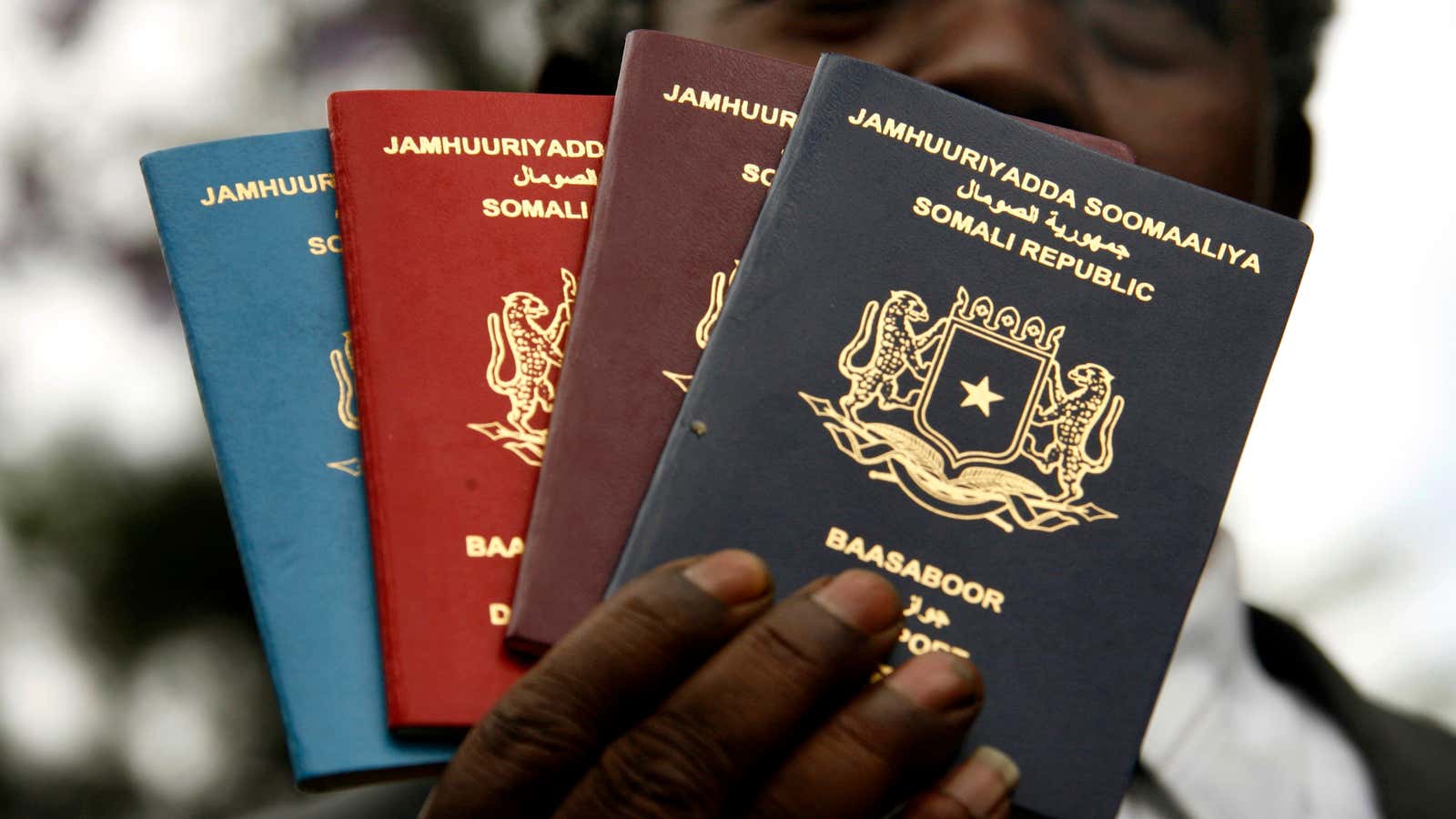It may be getting easier for Africans to travel within the continent, but African passports still can’t travel far.
The annual Henley Passport Index released on Jan. 9 showed an overall decline in the strength of African passports compared to other continents. The strongest African passport belongs to the Seychelles, with Mauritius and South Africa ranked second and third, remaining unchanged from the previous year.
In the 13 years that Henley & Partners have tracked the world’s passports (using data from the International Air Transport Association and its own research as a residence and citizenship consultancy), African countries have suffered the biggest decline as a bloc, accounting for 19 of the 27 biggest fallers in the past decade.
Seychelles and Mauritius were the only two countries to improve their standing over the decade. Seychelles climbed 17 places, and Mauritius 16 places. The islands’ improvement is largely due to being the only African countries who have a visa-waiver agreement with the Schengen area, according to Henley.
The Seychellois passport’s strength may also be attributed to the island nation’s own openness as a visa-free country, with no requirements for any traveller wishing to visit. Similarly, Mauritius does not require a visa from a majority of the world’s travelers, and only requires 16 countries’ citizens to apply for a visa before travel.
The Seychelles, Mauritius and South Africa retain their top spots on other passport indexes too. Passport Index, which ranks visa free scores and passport power in real-time, has the same top four African countries, but ranks Lesotho and Swaziland in fifth and sixth place ahead of Malawi and then Namibia.
The rankings indicate just how hard it still is for African travellers. Apart from the bottom ranked countries, most Africans can travel to fewer than 100 countries without a visa. For example, Nigerians may only travel to 46 countries without a visa, while Moroccans are slightly better off at 61 countries. Nigeria is the biggest faller over the last decade, losing 22 spots, followed by Sierra Leone and Libya, which dropped 20 and 18 places respectively.
Perhaps it is a consolation then that an increasing number of African states are dropping visa requirements for other countries. In the last two years, Benin, Ghana and Kenya dropped visa requirements for African travellers, while Rwanda became a visa-free country.
The African Development Bank found in 2016 that African countries are loosening their restrictions to encourage regional travel and trade. The ideal for some is the African Union’s continent-wide passport, but the continent is taking a collective step in the right direction even as international travel becomes narrower.
